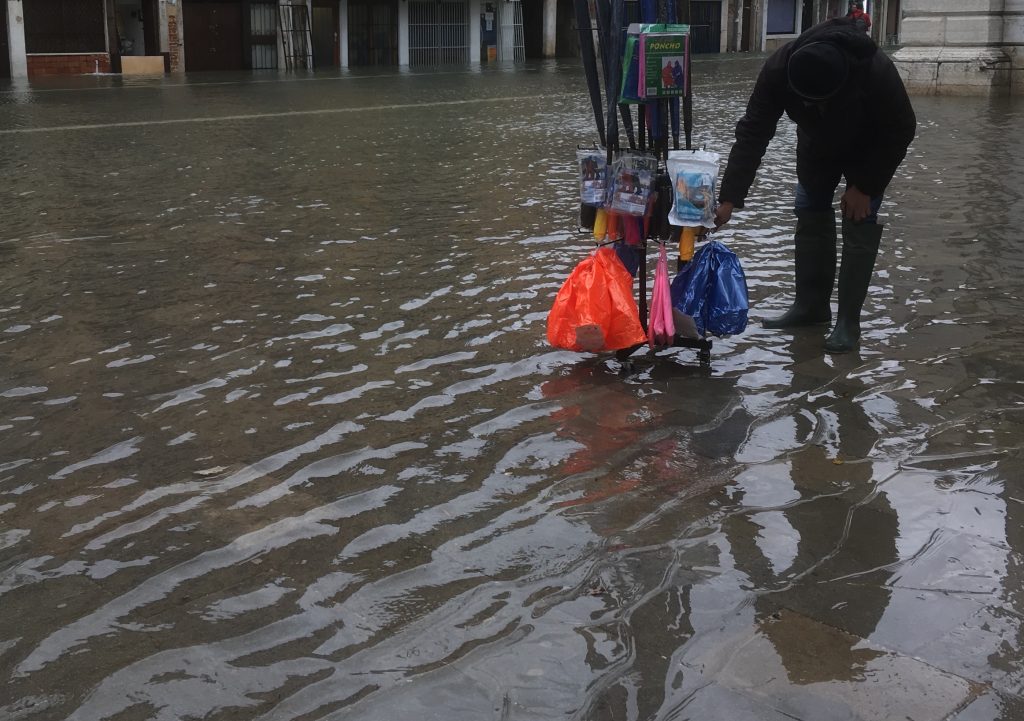It´s the uncertainty that should get us to action
„Climate skeptics can always suggest that there’s uncertainty, says Andrew Winston. Well, no kidding. Science is never 100 percent certain about anything. More specifically, we can’t know precisely how rising carbon dioxide levels will play out in terms of temperature increases, or the exact effects of those increases (more storms, droughts, floods, etc.). But that uncertainty suggests we need more action, not less.
My work is focused on business strategy and why it’s good for companies to tackle environmental and social challenges. But for years, I’ve been drawn into climate change debates. I’ve listened to attacks on the scientific method and debates over whether science relies on “consensus” versus verifiable, repeatable experiments. (It’s both.) But it’s really not worth rehashing all of that here. I’ll just say that the idea that thousands of scientists do not understand the scientific method, or that they did not consider different hypotheses, is bizarre.
So, in short, I believe what science is telling us. And it’s a dire situation — that’s not “alarmism” but realism. When the doctors tell you that you have advanced cancer, here are some reactions that are not healthy: denigrating the doctors as hacks, saying you actually know more about it than they do, calling them alarmist, or accusing them of being in it for the money.
(What you can experience, for example towards the end of the discussion with climate scientist Stephen Schneider) . More about this talk with him here.

“In the end, asking why I believe in climate change is the wrong question”, says Winston. ” The one that matters is this: Why do I believe we should act on climate change?”
Why should we act?
The good news is that, as AAAS says, we can do something about this. And that’s why, in the end, asking why I believe in climate change is the wrong question. The one that matters for making life, policy, and economic decisions is this: Why do I believe we should act on climate change?
This one is much easier. It’s about risk and reward, regardless of my or anyone’s belief in the science. This is the “it doesn’t really matter if you buy the science entirely” argument.
Reducing Risk
Just ask yourself this: What if scientists are right about the more extreme estimates of the impacts of climate change? What are the possible outcomes for our weather, sea levels, food production, etc.?
(…) The financial industry and companies spend a ton to hedge against things like currency, commodity, or portfolio value fluctuations.
At the “tail” end of possible outcomes on climate change is that we make the planet uninhabitable for humans. (None of this is about “saving the Earth,” which will be fine without us.)
So, what might happen, and what’s it worth to you to reduce that risk? We buy insurance because our house might burn down or we could drop dead tomorrow. The OECD estimates that the richest countries spend about 9 percent of GDP on insurance. Isn’t ensuring a stable climate that we depend on for our existence worth some focus and investment?
Economic Rewards
But here’s the best part. The economic evidence is growing that we save money building the clean economy.
Two years ago, Citibank produced a fantastic report, “Energy Darwinism II,” which compared an “action” scenario — one where the world builds out the clean energy economy — to a business-as-usual, fossil-fuel-based energy system. Citi’s key findings were:
- If we do not tackle climate change, by the middle of the century, it will cost the global economy tens of trillions of dollars.
- WIf we direct the vast sums we will spend on energy infrastructure and fuel toward the low-carbon action scenario, it will cost a couple trillion less.“
So far the arguments that Andrew Winston cites from an economic point of view. His distinction between different forms of denial can be found here.